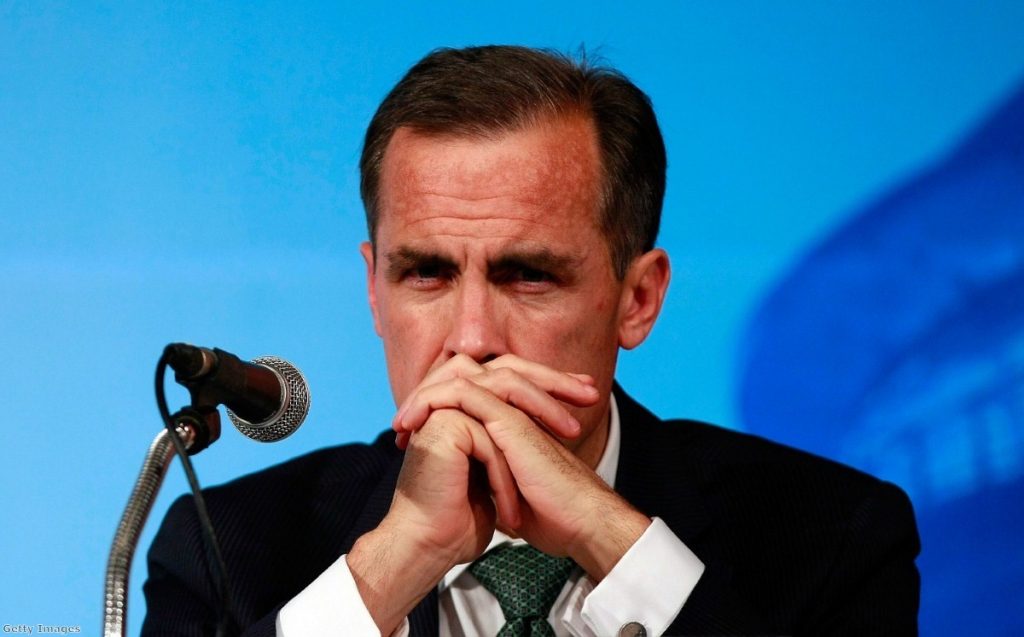City in shock as Osborne appoints Canadian as Bank of England governor
George Osborne has shocked Westminster and the City by appointing a leading Canadian banker as governor of the Bank of England.
The move was a remarkable coup for the chancellor. It was not leaked in advance, took the political world by surprise, and united left and right in praise both inside and outside Westminster.
Mark Carney will become the first non-Brit to become Bank of England governor since its inception in 1694.
However, his links with the UK are extensive. He studied in Oxford, has a British wife and is expected to apply for British citizenship once he arrives.


"To help steer Britain's families and businesses through these difficult economic times Britain needs the very best at a time like this, and in Mark Carney we've got him," the chancellor said.
There was a minor wobble when a video emerged within seconds of the announcement showing Carney pledging not to take the governor role a few months ago, but the announcement was generally well-received.
Shadow chancellor Ed Balls said he agreed with the appointment, prompting a rare moment of consensus between two of the Commons' most aggressive performers.
"I'll remember the phrase 'I commend the chancellor', because I'm not sure I'll hear it again," Osborne commented when Balls sat down.
Treasury committee chair Andrea Leadsom said she was so excited by the appointment she could "jump up and down".
Even Dennis Skinner, who is known for his gloomy demeanour and angry attacks on the Conservative front bench, sounded almost positive about the decision.
"Having listened to all the plaudits, all I can say is this man Mr Carney better be good," he said.
The news will have been deeply disappointing to deputy Bank of England governor Paul Tucker, who was widely tipped for the role.
Osborne may have been deterred from appointing Tucker because of his links with the Libor-rigging scandal earlier this year.
As an outsider, Carney is untainted by the failure of regulation that led to the financial crisis, or by the less-than-impressive response since 2008.
Carney, who is currently Bank of Canada governor, largely protected the Canadian economy from the effects of the financial crisis.
As chairman of the World Bank's financial stability board, he is also front-and-centre of the international reform agenda.
Despite his background as a Goldman Sachs man, he has been plain-spoken in his criticism of the financial sector.
"One of the things we're doing as international regulators is not just designing rules but we're auditing the countries, from the UK to Canada to China, to see whether they're actually implementing these new rules," he said in recently.
"And if they don't, we're going straight to the top. We're going to the leaders of the G20, and we're going to the media and the general public, and we're letting people know who's on track and who's lagging behind."
He also caused controversy by backing the Occupy movement and saying it was important to reduce inequality.
"I understand the frustration of many people, particularly in the United States," he told the Canadian Broadcasting Corporation (CBC).
"You've had increase in inequality because of globalisation, because of technology. You've had a big increase in the ratio of CEO earnings to workers on the shop floor."
Carney will serve for five years as governor.

